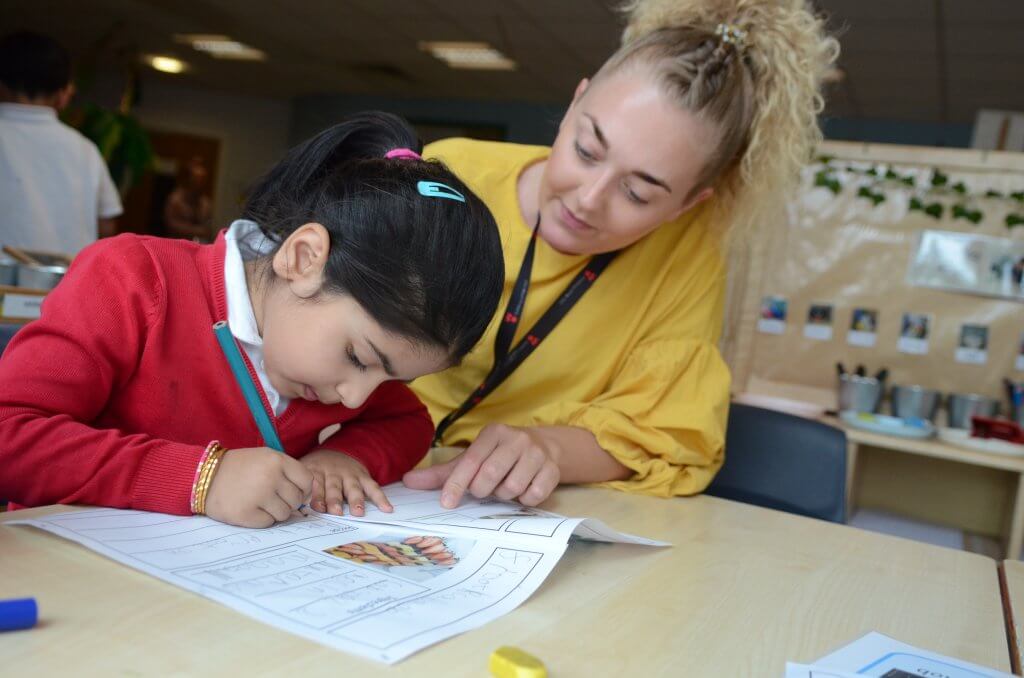A blog written by Dr. Lynne Wadsworth.
MENTAL HEALTH AWARENESS WEEK 2019
Over the last decade as a society, it seems that our awareness around mental health has increased massively. Rydderch et.al (2016) found that even between 2008 and 2014 there was a significant increase in media articles covering mental illness. This is perhaps unsurprising given the involvement of high profile individuals such as Prince Harry and the Duke and Duchess of Cambridge who have been involved in, ‘Heads Together’, a campaign aimed at reducing stigma attached to mental health.
It appears that the world is now more ready to hear about mental health and celebrities from a wide range of genres and ages are talking; Fearne Cotton, Stephen Fry, Zoella, Kendrick Lamar, Ryan Reynolds, Demi Lovato to name but a few.
This seems to be mirrored in the general population and from a personal perspective mental health concerns seem to be increasingly of concern within my schools. But what exactly does mental health mean? The World Health Organization defines mental health as:
“Mental health is not just the absence of mental disorder. It is defined as a state of well-being in which every individual realizes his or her own potential, can cope with the normal stresses of life, can work productively and fruitfully, and is able to make a contribution to her or his community.”
As such mental health and well-being is not just about surviving but about thriving; being the best version of yourself.
However, survival appears to be the focus for many. I recently read a newspaper article (The Telegraph, October 2018) stating that one in three medical notes handed out are now related to mental health needs. This made me wonder whether this apparent rise was due to increased problems in this area or whether people are now more comfortable to provide this as an explanation.
Answering this question is a challenging one that I will not attempt to do here. However, I will attempt to explore a specific field where there appears to be growing concerns; within our schools.
There are some frightening statistics with regard to young people and mental health. NHS Digital (Mental Health of Children and Young People in England, 2017) report that:
- One in eight (12.8%) 5 to 19 year olds had at least one mental disorder when assessed in 2017.
- There has been a slight increase over time in the prevalence of mental disorder in 5 to 15 year olds (the age-group covered on all surveys in this series).
- One in twenty (5.5%) children aged between 2 and 4 years experienced at least one mental health problem.
Furthermore, statistics within The Good Childhood (2018) report show that although Children’s happiness with their lives rose steadily from 1995 to 2010, this progress has now started to reverse.
These statistics, coupled with the fact that according to the Children’s society (2008) ”50% of mental health problems are established by age 14 and 75% by age 24” lead to worrying conclusions about the mental health of society moving forward.
The government recognises these problems and the significant role schooling plays in a child’s life, “we want to put schools and colleges at the heart of our efforts to intervene early and prevent problems escalating” (Green paper 2017, Transforming Children and Young People’s Mental Health). One of the ways it plans to do so is through the appointment of school ‘Mental Health Leads’.
Whilst I can see there are clearly huge advantages to this, I can’t help but reflect on my personal experience interacting with teachers. Often I work with amazing teachers who genuinely care but are exhausted due to long hours and the emotional demands of dealing with increasingly complex children / young people and their families.
Might this added responsibility be a step too far? Should we be considering the mental health and well-being of our teachers before that of the young people they teach? Simple logic would argue that a stressed out teacher is more likely to have a stressed out class and this is supported by research. In one such study (Oberle and Schanert-Reich,2016) researchers found that students had higher levels of the stress hormone cortisol if their teachers reported higher stress levels. Whilst it is impossible to state which comes first there clearly is evidence that we need to be considering teachers’ mental health and well being.
In a recent article by NASUWT-The Teacher’s Union (2019) it was reported, “Three in ten teachers (30%) say they have turned to medication in the last 12 months to deal with the physical and mental toll their job is taking on them. Nearly two thirds (65%) of teachers also feel their job has adversely affected their mental health and over half (54%) feel it has affected their physical health in the last 12 months.” Furthermore, the school workforce in England review highlighted that, “in 2015 the number of people leaving the teaching profession was higher than the number entering it for the first time and in 2016 this pattern increased with 2,620 more leaving than joining.”
So what can be done?
Whilst all of this might sound rather depressing I honestly believe that the tide is changing. As a psychologist, I have always been interested in mental health and well-being but now it seems that the world is interested which means there is great potential for positive change.
It has also been recognized that mental health needs are not something which should be dealt with solely by CAMHs. For me this marks a shift in a previous desire to medicalize and therefore treat mental health.
Instead, we are moving towards a more holistic view of mental health as a continuum which people can move up and down. A part of this is an understanding that there are lots of things that can be done to promote positive mental health; to ensure that everyone has an opportunity to really thrive. Techniques previously thought to be ‘alternative’ such as Mindfulness are now being recognized as mainstream tools in supporting thriving.
Within my work I am increasingly seeing school’s embrace whole school approaches where well-being is key. I have been lucky enough to work in schools who are part of ‘The attachment research community’ (ARC) Project. This whole school approach promotes mental health and well-being through ‘Attachment and Trauma Aware’ approaches in education.
Perhaps the biggest shift has been in talking about mental health. No longer do teachers feel they have to suffer in silence. This openness about the well-being of staff has led me to provide supervision sessions within one of my schools. This has been excellently received.
In order for me to practice as a psychologist it is a legal requirement that I have regular supervision sessions with a colleague. The aim of this is to provide time to reflect on what is often a challenging role. Arguably no less challenging than being a teacher.
In my view, the positive feedback received in my school was because supervision provided staff with the luxury of time and space to reflect on their own practices. Which further highlights to me that within education what is sometimes considered a luxury is actually an essential.
Please share this with a colleague and keep on talking…
References:
- Department of Health and Social Care and Department of Education (2017) Transforming Children and Young People’s Mental Health Provision: a Green Paper.
- NASUWT-The Teacher’s Union (2019) Ministers and employers in denial about the national crisis in teachers’ mental health.
- NHS Digital (2018) Mental health of Children and Young People in England 2017.
- Oberle, Schanert-Reich (2016) Stress contagion in the classroom? The link between classroom teacher burnout and morning cortisol in school students. Social Science and Medicine, 159, 30-37
- Rhydderch D, Krooupa A-M, Shefer G, Goulden R, Williams P, Thornicroft A, Rose D, Thornicroft G, Henderson C. (2016) Changes in newspaper coverage of mental illness from 2008 to 2014 in England (PDF).
- The Children’s Society (2018) The Good childhood report 2018.
- The Children’ Society (2008) referenced on Mental Health Foundation.
ABOUT THE AUTHOR
Lynne is passionate about positive psychology and its application within the field of well-being. She has completed doctoral research on Domestic Abuse and has an interest in trauma. She works as part of the Educational Psychology Looked After Children’s Team. Within the team, she has a specialist role in supervision and is currently supervising doctoral research on whole school well-being approaches.
Please get in touch or visit this page for more information.













